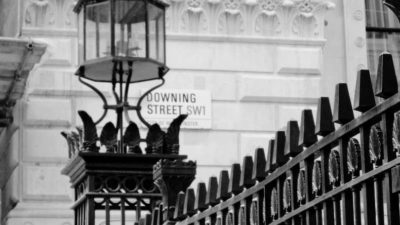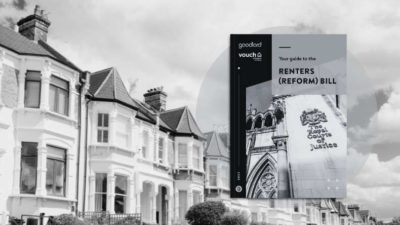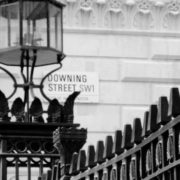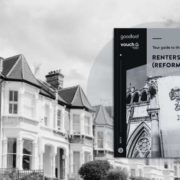The government’s flagship law intended to avoid another Grenfell-type tragedy is at danger of worsening the cladding crisis that has paralysed parts of the UK housing market, warns the boss of a leading residential property consultancy.
The Fire Safety Bill, which is currently working its way through parliament, will require all the fire safety provisions of a building, how they are managed, maintained and tested, to be detailed.
Such information will likely be required by mortgage lenders, says Mary-Anne Bowring, founder and managing director of Ringley Group.
Although it’s the responsibility of the building owner to provide a building’s fire safety information while also covering any cost, the reality is that this is invariably recoverable through service charge, so rather the leaseholder will bear the brunt of any fee, Mary-Anne warns.
The controversy surrounding EWS1 forms has demonstrated that the information regarding the materials used in a building’s construction is not always reliable, meaning costly invasive tests will be required, she adds.
This leaves residents and managing agents, who are ill equipped to carry out such technical tasks, at risk of footing the bill.
Mary-Anne, who sat on the RICS Residential Working Group and is an adviser to the Federation of Private Residents Associations, wants greater clarity for the property industry regarding the new legislation, and for the government to commit further funding for cladding remediation works.
Ringley manages 12,000 homes across the UK, and estimates nearly a fifth (18 percent) of its managed portfolio is affected by cladding issues.
The London-headquartered company recently hired Jon Curtis, who has advised ministers on issues relating to the EWS1 form, as its head of building engineering. Part of his role will be coordinating Ringley’s response to the cladding crisis.
Mary-Anne Bowring, group managing director at Ringley, says:
“Once law, the Fire Safety Bill will see mortgage lenders demand more information regarding the building’s fire safety provisions that many homeowners will simply not be in a position to provide but may have no choice by 2022-2023 when all this is expected to be phased in.”
“It is not clear whether the Hackitt Review which was limited to HRRBs (buildings of 10 or more stories, but recommended a regime that applied to all buildings) will apply to so much of the UK’s converted and smaller blocks where the cost of compliance per leaseholder will be huge.”
“Residents have learned the hard way that Building Control, NHBC and Premier Guarantees cannot be relied upon. The next tier is installers certifications, but installers can go bust or do a bad job on a Friday afternoon and substitute materials.”
“Some developers are still disregarding the importance of the process and treating it as a desk based assessment exercise. Additionally, most only have limited photographic evidence during the time of building to prove sub-contractors didn’t depart from specified products.”
“In line with the Hackitt review, the government is moving to a test based regime meaning the only real way of knowing a buildings true fire safety is through costly invasive tests, which will be needed not only on new developments, but to retrospectively document all existing stock too.”
“Given the industry is already struggling with the impact of EWS1 forms, this risks further paralysing huge swathes of the housing market, with leaseholders and flat-owners worse affected.”
“To avoid the cladding crisis spiralling further out of control, the government needs to do three things.”
First is to commit further resources to expand testing capacity. Two, to start managing owners’ expectations that ultimately living in a leasehold property is going to get more complex for those managing buildings, who have to gather extensive fire safety information and more expensive for leaseholders, who have to pay for that process.
“Three, pledge additional funding for cladding remediation works on low rise buildings so innocent homeowners aren’t forced to foot the bill. While proposed amendments to the Fire Safety Bill amendments intend to ban leaseholders from paying, this won’t help leaseholders in buildings under 18m who have a real problem now.”
“Without these three actions, we risk putting huge swathes of the housing market in paralysis and trapping thousands of people in homes that are potentially dangerous or worthless.”
























Unfortunately there will be millions of bankruptcies as few flat owners will be able to afford remediation costs.
Lenders will therefore have little alternative than to pay the full remediation costs or the Freeholders will repossess leaving the lenders with no security.
But of course lenders will be paying out extensive remediation costs for flats that even if fixed will still have to be sold substantially BMV.
There will then be massive shortfalls which mortgagees cannot hope to pay.
They would be better filing for personal bankruptcy as they will be free and clear of all debts after about 1 year.
Yes it means they can’t buy a home with a mortgage for 6 years………………….big deal!!
If they don’t go bankrupt a lender can pursue a mortgage debt for 12 years.
That is why bankruptcy is necessary to end all debt pursuance.
Flat owners should be preparing to go bankrupt.
That means ensuring all assets of worth are hidden from Official Receiver clutches.
That means emptying savings accounts and ‘selling’ vehicles so that they aren’t in the name of the person who usually drives it.
Planning for bankruptcy should start now.
Any flat owner that is a LL owning BTL or other properties should start selling them off ASAP.
The OR will come after these assets if they are still owned by the flatowners.